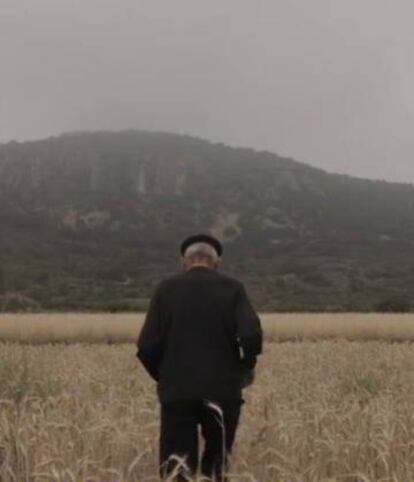Why did Hitler bomb four villages in Castellón province in 1938?
Documentary reveals Luftwaffe did not inform Franco of raid to test its Stuka bombers

On April 26, 1937, at the height of the Spanish Civil War, the German Luftwaffe bombed the Basque town of Gernika, killing 126 people. Gernika was not a military target and of no strategic use, but the attack allowed the Nazi regime to test the efficacy of its aircraft.
In response to the international outcry over Gernika, General Francisco Franco reportedly asked the German authorities to avoid bombing civilian targets. But a year later, in May 1938, German bombers once again attacked undefended civilians, killing 38 people in four tiny communities in the interior of Castellón province.
Few people know about the air raid, but a new documentary, called Experimento Stuka uncovers the mystery of why the Luftwaffe bombed the tiny village of Benassal in the arid Maestrat region.
Óscar Vives, a resident of Benassal, read about the attack in a history of the Spanish Civil War and decided to investigate. He traveled to Freiburg in Germany to research the country’s military archives.
When they heard the aircraft everybody came out to see them. Some people thought the first bombs were just hay bales
He found a 50-page report detailing the bombing of Benassal and three other villages – Albocásser, Ares del Maestrat and Vilar de Canes – that showed how the German air force had tested out its Junkers JU 87 dive bomber, better known as the Stuka, on an undefended civilian target.
“We have interviewed around 20 survivors who witnessed the bombing,” says Rafa Molés, the director of Experimento Stuka. “They were children at the time, but saw how their families and neighbors died. When the war ended, the dictatorship buried the case and there was no investigation.
“Those children had never seen an airplane and barely knew about the war. When they heard the aircraft everybody came out to see them. Some people thought the first bombs were just hay bales.”
Molés says the events in the Maestrat can be compared to Gernika. “In Gernika, Hitler showed how deadly his war planes could be. In Castellón, he used a secret weapon. Not even Franco knew about the plans, and the Germans never said what it had done there.”
The documentary, which has been partially funded by the regional government of Valencia, will be screened at the upcoming DocsBarcelona international documentary film festival.
Tu suscripción se está usando en otro dispositivo
¿Quieres añadir otro usuario a tu suscripción?
Si continúas leyendo en este dispositivo, no se podrá leer en el otro.
FlechaTu suscripción se está usando en otro dispositivo y solo puedes acceder a EL PAÍS desde un dispositivo a la vez.
Si quieres compartir tu cuenta, cambia tu suscripción a la modalidad Premium, así podrás añadir otro usuario. Cada uno accederá con su propia cuenta de email, lo que os permitirá personalizar vuestra experiencia en EL PAÍS.
¿Tienes una suscripción de empresa? Accede aquí para contratar más cuentas.
En el caso de no saber quién está usando tu cuenta, te recomendamos cambiar tu contraseña aquí.
Si decides continuar compartiendo tu cuenta, este mensaje se mostrará en tu dispositivo y en el de la otra persona que está usando tu cuenta de forma indefinida, afectando a tu experiencia de lectura. Puedes consultar aquí los términos y condiciones de la suscripción digital.








































